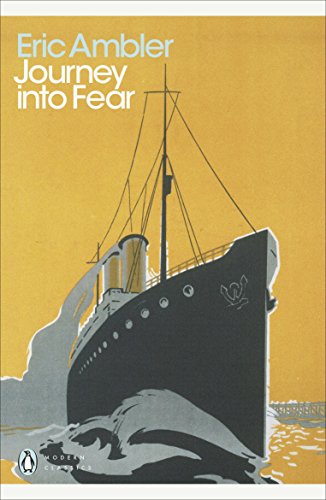What do you think?
Rate this book


224 pages, Paperback
First published January 1, 1940
“’You are right. It is not for us to ask questions. And why? Because the only people who can give us the answers are the bankers and the politicians at the top, the boys with the shares in the big factories which make war materials. They will not give us answers. Why? Because they know that if the soldiers of France and England knew those answers they would not fight. […] No, it is not good for those who fight to know too much. Speeches, yes! The truth, no!’”
“‘[…] One must understand a person thoroughly before one can insult him effectively. The French lady, for example, called me a filthy Bosche. I am unmoved. I bathed this morning and I have no unpleasant habits.’”
Over dinner at the Pera Palace Hotel, Kopeikin gave war news. For him, the Soviets were still "the July assassins" of Nicholas the Second, and Graham heard much of Finnish victories and Russian defeats. The Germans had sunk more British ships and lost more submarines. The Dutch, the Danes, the Swedes and the Norwegians were looking to their defences. The world awaited a bloody Spring. They went on to talk about the earthquake. It was half-past ten when Kopeikin announced that it was time for them leave for Le Jockey Cabaret.
"A shock, Mr. Graham? You do not like it, eh? It is not pleasant. War is war. But it is one thing to be a soldier in the trenches: the enemy is not trying to kill you in particular because you are Mr. Graham: the man next to you will do as well: it is all impersonal. When you are a marked man it is not so easy to keep your courage. I understand, believe me. But you have advantages over the solider. You have only to defend yourself. You do not have to go into the open and attack. And you have no trench or fort to hold. You may run away without being a coward. You must reach London safely. But it is a long way from Istanbul to London. You must, like the soldier, take precautions against surprise. you must know your enemy. You follow me?"